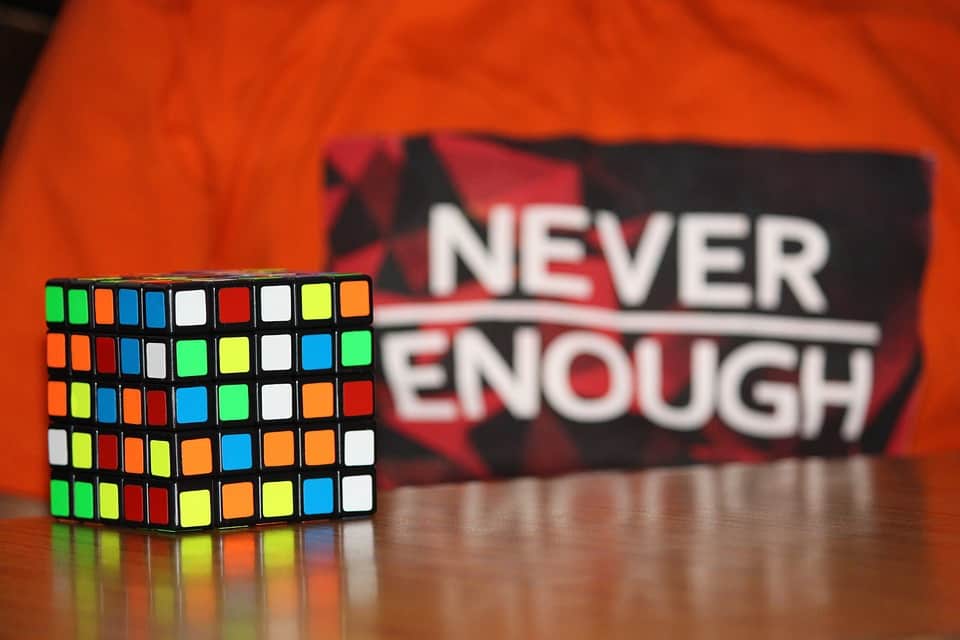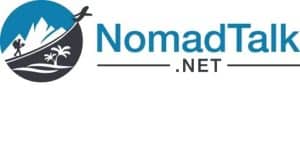If you want to get yourself a cushy remote work position to ensure your digital nomad life is plain sailing then you’re, sooner or later, going to have to get through a remote work interview. Well, nomads, we’ve got your back on this one and we’ve found the 15 most common remote work interview questions for you.
Better still, we’ve also got some ideas as to how you might want to answer them. Get these right and you’ll be every closer to landing that dream job and then moving to Cambodia to work in the shade of Angkor Wat!

Table of Contents
Question One: What’s Your Remote Work Experience?
Now, it’s OK if you have no remote work experience to fess up at this point. However, if you can find something to say even if it’s just an example of remote work from college, you’re going to help illustrate that you can work remotely and that makes it easier to hire you.
Employers ask this question because not all employees thrive when away from the office. It also helps them ask the right questions in the rest of the interview to better understand how you work when nobody’s watching over your shoulder.
Question Two: What Are Your Favorite Tools For Working Remotely?

This is why you shouldn’t lie when you answer the first (or indeed, any) question because there will be follow up questions. Now, even if you haven’t worked remotely – you can probably explain how you’ve used Skype, e-mail, video calling, etc. in order to do stuff with other people when you weren’t in the same room.
If you have worked remotely – you can start name dropping tools like Slack, Zoom, Trello, etc. and explaining how they make you more productive.
Remember the interviewer isn’t trying to catch you out here – they want to know you’re capable of picking up new technologies and using them without your hand being held.
Question Three: Where Do You Intend To Work And What’s It Like?
Some remote workers will now talk about their home office, others are going to have to explain about co-working spaces or cafes.
The purpose here is to show the interviewer that you understand that work is work and that you’ve got a place to focus on work and not on your cat, your 5 screaming kids, and your partner’s sciatica.
You can fudge a little on this question if you need to. Just make sure that you get across the message that you’re serious about work.
Question Four: How Would You (Or How Do You) Manage Issues When You’re Part Of A Remote Team

It is harder to manage remote teams in some ways than it is to manage people in an office. In an office, managers can see the group dynamics and make course corrections before things come to a showdown.
Sadly, when they don’t have eyes on you, they can miss the signs because, to be fair, you didn’t show them any before you ran straight into butting heads with a colleague.
What the future manager hopes to see here is that you understand this and can calmly and confidently communicate a problem without hurting someone’s feelings and turning a minor issue into a flame war.
Question Five: How Do You Ensure You Meet Deadlines When You’re Remote Working?
This is your chance to show off your organizational skills. Sure, remote working means you can, to some extent at least, set your own schedule but the hiring manager doesn’t really care about how you balance your needs with work; they want to know how you’ll balance their needs with your life.
If they have a schedule, they expect you to adhere to, you may need to explain how you might do that if working from another time zone at this point too.
The message of this question is that remote work is still work and you’re going to have to do work when they want it done and not when you feel like it.
Question Six: Describe A Situation When You Faced A Really Tight Deadline And What You Did To Meet It?

This is a test of both your creativity and reliability. It is absolutely vital that remote workers meet deadlines and it is the hiring manager’s biggest fear that even if they hire someone with all the necessary skills; the work still won’t get done.
Your chosen example should include a challenge and what you did to overcome that challenge and meet the deadline. Whatever you do, don’t pick a case when you missed a deadline, but it all turned out OK in the end, that’s not what anyone wants to hear.
If you can make this answer relevant to remote working, so much the better but it doesn’t need to relate to remote work. Just show you care and are professional and smart enough to own and solve your problems.
Question Seven: What Kind Of Hours Would You Prefer To Keep?
This isn’t a trick question. There’s often some flexibility when it comes to the hours you can work remotely, though some employers will have a fixed 9 – 5 (or whatever schedule reflects their standard working day) too.
It helps for them to understand whether you wake up in the morning and love to get straight down to things (this is me – 6 a.m. is my favorite time of the day) or whether you’d rather burn the candle late into the night (this is Megan, I am not sure how we manage to co-exist so well but we do).
Then they can develop a schedule to suit their needs and yours. It can help to pitch some advantages to your preference (e.g. “I like to work early so that there’s nothing outstanding when my colleagues start the day”) as part of your answer.
Question Eight: When You Run Into A Problem, How Do You Attempt To Solve It?

There are two things they want to know here. Firstly, you have a problem-solving methodology that you are capable of applying in any given situation. Nobody wants you on the phone to support every time you forget to plug your laptop in to charge.
Secondly, they want to know that there is a time when you’re going to step up and ask for help because there are problems that you cannot solve by yourself. They don’t want you sat around at home being stressed and unproductive, either.
Question Nine: How Do You Feel About Time Tracking Software?
I can tell you how I feel about this but it’s not something you put in print where children might read it.
More and more companies like to track your time online and some insist that you install spyware so that they can track your time without your input.
How you feel about this is up to you. It’s fair to say that if you won’t use it (and I won’t – I’m not 6, I’m an adult professional, if you want to watch me, you can pay extra for the privilege and trust me, you don’t) then you may not get the job.
However, I’d be more than happy to fill in a timesheet for the purposes of project accounting and many employers are only looking for this kind of input. Establishing boundaries and trust is at the heart of this question.
Question Ten: How Do You Stay Up To Date With Your Industry?

This question is completely fair enough. The trouble with many remote workers is that they often don’t keep up to date with their profession or their industry and their skillset slowly atrophies.
This is your chance to show your passion for your industry and show your cultural fit with your new organization. Talk about the gurus in your field, the media that you love and where you source your training and development from. Show the interviewer that there’s no better choice out there because you are THE GIRL for the job.
Question Eleven: What’s Your Preferred Communication Style?
We wish employers asked this at every interview. It’s very useful for remote teams though as nobody’s going to get to know you informally in the office to gauge your preferences.
You can talk about video vs IM vs e-mail etc. and you can emphasize your preference for the mode of communication. (I’d prefer you sent me short to the point communication rather than being positive for 5 minutes, throwing in some shit and then switching back to another 5 minutes of bland positivity, but that’s me).
Question Twelve: How Do You Minimize Distractions When Working Remotely?

This is a superb question and you can’t brush it off because everyone gets distracted when working remotely – the question is not whether it happens but what you do when it does.
This is a way for you to show that you understand the importance of work and can communicate that to other people and focus on it yourself.
Question Thirteen: Do You Miss The Social Interaction Of Working In An Office?
It’s not a loaded question; the key here is, to be honest, and acknowledge that, of course, there are times when it would be nice to be surrounded by people. Every remote worker feels like that at some point even me and I love working on my own.
But once you have acknowledged it, it’s time to talk about what you do to socialize outside of the work environment to offset that feeling and what other benefits of remote working you think outweigh this disadvantage.
That way the interviewer knows you’ve thought your decision through and aren’t just rushing into something that will make you miserable over time.
Question Fourteen: Do You Feel That You Are Self-Motivated?

There’s only one sensible answer to this question, “yes!” But you need to honest about this with yourself as well as with the interviewer because if you’re not then your career in remote work is likely to come to a bitter and sticky end.
You need to reassure the interviewer that you understand how important it is to get the job done without needing to be cajoled and reminded all the time.
Question Fifteen: Do You Have Any Questions For Us?
You don’t talk about money and benefits at this stage of the interview. They haven’t offered you a job, yet. This is your chance to shine and show that you’ve understood what the job entails and to dig deeper into that.
Ask searching questions about profitability, how the company trains and promotes remote workers, what kind of support is available when communication in a team goes wrong, that kind of thing. You want to illustrate you’ve been listening and that you can get under the skin of what’s expected of you.
Conclusion

If you can work through each of these questions in your head prior to each remote work interview that you do; you’re going to find it much easier to land yourself a remote job.
Now, you still have to prove your experience and skills and that you’re a good cultural fit on top of this but if you fluff this stuff – they may not even ask about that at all.
If you’re currently looking for remote work, good luck and we hope that this is useful for your interview preparation.
